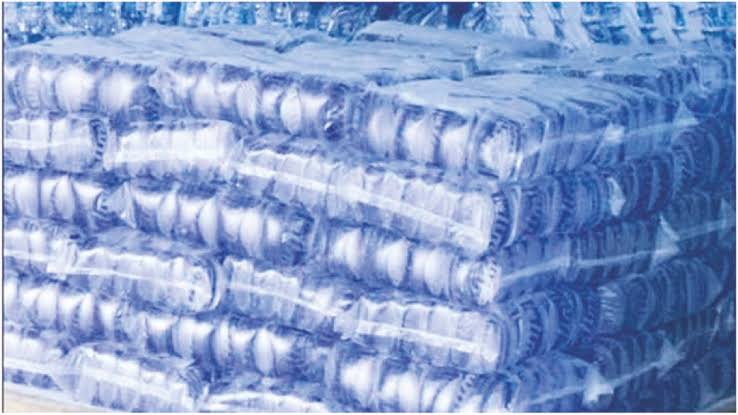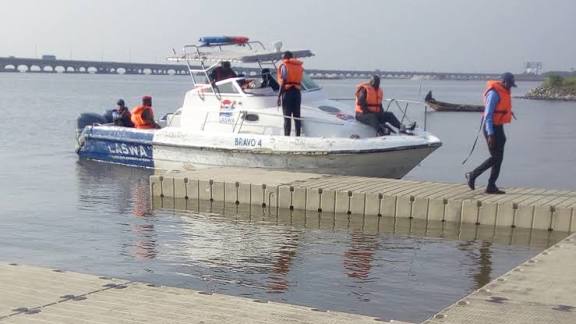In Lagos, a city where bustling markets and never-ending traffic define daily life, access to clean drinking water has always been a critical need. For years, sachet water, popularly known as “pure water,” has been the lifeblood of Lagos, providing an affordable and portable solution to the city’s water crisis. But unfortunately, today, this simple necessity is fast transforming into a luxury, as soaring prices put it beyond the reach of many struggling households.
The rising cost and increasing scarcity of sachet water is becoming a serious concern. For instance, a bag of pure water that previously cost ₦250 as at November 2024, in Ogombo, Lagos when purchased directly from the company has surged to ₦400 as at December, 2024, in the same location. This raises questions about the prices being charged by stores, supermarkets, and other vendors, and how this inflation impacts the poor and even the middle class. The price hike has not only burdened low-income residents but has also sparked reactions from public figures.
Social media influencer, Abike Halima Raheem, popularly known as Papaya Ex, expressed her frustration on X (formerly Twitter). She disclosed that her household in Lekki spends around ₦720,000 monthly on sachet water due to the poor water quality in the area. Papaya Ex criticized the excessive costs involved in accessing clean water, emphasizing the challenges of affording this basic necessity.
Lekki Big Girl Papaya Ex laments bitterly as she’s forced to return to spending over N700k on pure water monthly pic.twitter.com/lk9Zey6lbQ
— Dockaysworld.NG (@Dockaysworld) November 30, 2024
Lagos residents have long grappled with challenges related to unclean water, especially in areas such as Lekki and Ajah. These issues have severely impacted health, livelihoods, and overall quality of life. Common problems include the contamination of water sources through polluted groundwater and poor waste management, which contribute to outbreaks of diseases such as cholera, typhoid, and diarrhea.
In June 2024, Lagos experienced a cholera outbreak that initially saw 324 suspected cases and 15 deaths. Within a week, the number of suspected cases rose to 436, and six days later, over 500 suspected cases were reported, with 43 confirmed cases and a 5.4% case fatality rate among suspected cases. The risks posed by unclean water are immense, and the government must prioritize providing clean water to residents before implementing strategies that could inadvertently restrict access to what people currently rely on as their primary water source.
In October 3rd, 2024, the Lagos government, in a bid to address environmental concerns, announced plans to ban single-use plastics, including sachet water, effective January 2025. This initiative aims to reduce plastic waste and promote sustainable environmental practices. The Commissioner for Environment and Water Resources, Tokunbo Wahab, emphasized that the ban is part of a broader strategy to manage plastic waste and safeguard the environment.
This strategy could indeed help mitigate the environmental harm caused by the single-use of plastics over time. However, without offering viable alternatives to Lagos residents who rely heavily on pure water for survival, it may appear as an intentional move to further marginalize vulnerable populations.
Also, given the current trends, access to drinking water could become a major concern in Lagos. Hydration might take over the center stage in Lagos, with pure water becoming a scarce treasure due to its escalating cost, making it inaccessible for consumers and also causing Lagosians to question the affordability of this basic need.

The impact of sachet water price surge has profound implications for Lagos residents, particularly the economically disadvantaged. For many low-income households, sachet water is the primary source of safe drinking water. With prices soaring, these families face increased financial strain, forcing some to resort to unsafe water sources, thereby elevating the risk of waterborne diseases. The situation exacerbates existing inequalities, as the affluent can afford alternative water sources, while the poor bear the brunt of the crisis.
Addressing this multifaceted issue requires a comprehensive approach:
Infrastructure Development: The government should invest in improving public water supply infrastructure to ensure all residents have access to clean and affordable water, reducing reliance on sachet water.
Public-Private Partnerships: Collaborations between the government and private sector can facilitate the development of sustainable water solutions, such as community water purification systems.
Environmental Education: Raising public awareness about the environmental impact of single-use plastics and promoting alternatives can drive behavioral change and support the transition to sustainable practices.
Regulatory Support for Producers: Providing sachet water producers with clear guidelines and support to transition to environmentally friendly packaging can help mitigate economic disruptions and maintain supply.
Subsidies for Low-Income Households: Implementing targeted subsidies or assistance programs can help vulnerable populations access clean water without undue financial burden.
In conclusion, while the Lagos State Government’s initiative to ban single-use plastics addresses critical environmental concerns, it is imperative to balance these efforts with the immediate needs of residents. Ensuring access to affordable, clean water is essential, and a collaborative approach involving government, industry stakeholders, and the public is crucial to achieving sustainable solutions that serve both the environment and the people.







Leave a Reply